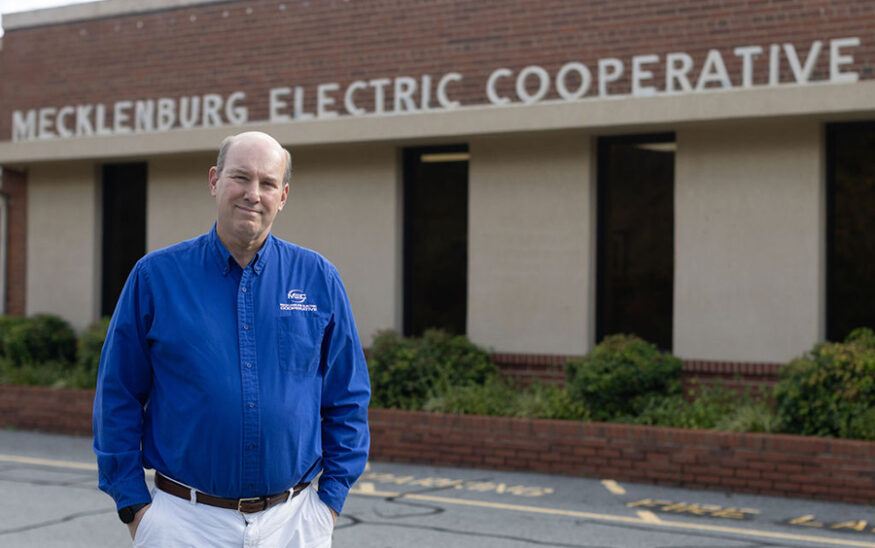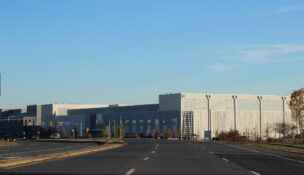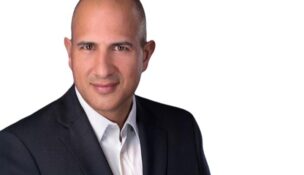Mecklenburg Electric Coop wrestles with data center energy demand
Cooperative petitions state to raise rates for large-load consumers

David Lipscomb is vice president of member and energy services at Mecklenburg Electric Cooperative. Photo by Crystal Vandegrift

David Lipscomb is vice president of member and energy services at Mecklenburg Electric Cooperative. Photo by Crystal Vandegrift
Mecklenburg Electric Coop wrestles with data center energy demand
Cooperative petitions state to raise rates for large-load consumers
SUMMARY:
- Mecklenburg Electric Cooperative petitions to charge new rate for large-load consumers
- TECfusions identified Clarksville data center as sole customer impacted
- Regulators will issue final decision later
Across Virginia and across the nation, lawmakers are trying to figure out how to provide enough electricity for power-hungry data centers without driving up residential electric rates.
Mecklenburg Electric Cooperative, which is headquartered in Chase City, recently petitioned the state for permission to increase rates for large-load consumers, such as data centers. The cooperative has a duty, said David H. Lipscomb, vice president of energy and member services at the cooperative, to “ensure that each class of membership pays its fair share of the cost they create.”
As of this summer, though, Mecklenburg Electric Cooperative had just one customer with an annual demand averaging 5 megawatts or more per month. That’s according to Aug. 29 testimony from MEC President and CEO Casey Logan given to the Virginia State Corporation Commission, the state agency with regulatory authority over utilities.
And while the cooperative didn’t name the customer, it’s looking like it’s a Clarksville data center.
“MEC is currently serving a large-load consumer and will likely serve additional large-load consumers in the future, which requires significant electric infrastructure,” Logan stated. Additionally, Logan testified that the cooperative attempted to negotiate a separate electric service agreement with this large-load consumer but failed to make a deal.
TECfusions, a Florida-based data center operator that has a data center campus in Clarksville, identified itself as that sole customer in an Oct. 21 comment sent to the SCC. The company stated, “MEC is attempting to have the commission implement what we could not agree to through negotiation.”
TECfusions did not immediately respond to a request for comment Friday.
On Sept. 5, the commission gave the go-ahead for the cooperative — which serves 32,000 members in portions of nine Southside Virginia counties and five northern North Carolina counties — to issue an interim rate increase for customers who consume more than 5 megawatts of electricity a month.
The commission gave interested parties until Oct. 24 to submit comments on the cooperative’s petition. Through Dec. 5, the cooperative will have time to make additional comments. Later, the commission will make a final review.
In its petition to the regulator, the cooperative noted that it is “in a state of emergency due to the magnitude of costs and risks imposed on the cooperative’s legacy members, who did not create those costs and risks.”
TECfusions, in its comment, balked at at this notion
“What is the underlying cause for this state of emergency?” TECfusions asked in its comment. “The current large load customer has been operational for over a year.”
TECfusions said the company did not sign an electric service agreement with the cooperative because they could not agree on matters such as the frequency of billing, the amount of time the company would have to pay a bill and amounts required for deposits.
TECfusions began construction on its Clarksville data center in 2023. By June 2024, the data center announced it had 24 megawatts of capacity available. Currently, the data center leases 80 megawatts of capacity, according to the business’ website.
In February, TECfusions announced the purchase of an additional 73 acres in Clarksville to expand its data center operation.
The amount of electricity provided by MEC has grown over the years. In 2021, the nonprofit utility provided 607 million kilowatt-hours of electricity to its members. By 2024, that figure had increased to 1.8 billion kilowatt-hours.
Lipscomb declined Friday to verify that TECfusions is the cooperative’s one large-load consumer.
He said that any member who uses more than 5 megawatts, now or in the future, would be eligible for the rate under consideration. “Anybody that gets to that size, that’s who it’s for,” he said.
The cooperative might be willing to draw up separate energy service agreements for large-load consumers, according to Lipscomb.
Whether a company is charged by the rate under consideration by the commission or an individual agreement, though, that goal is the same: “Cost recovery is what’s the primary driver,” Lipscomb said.
i


















